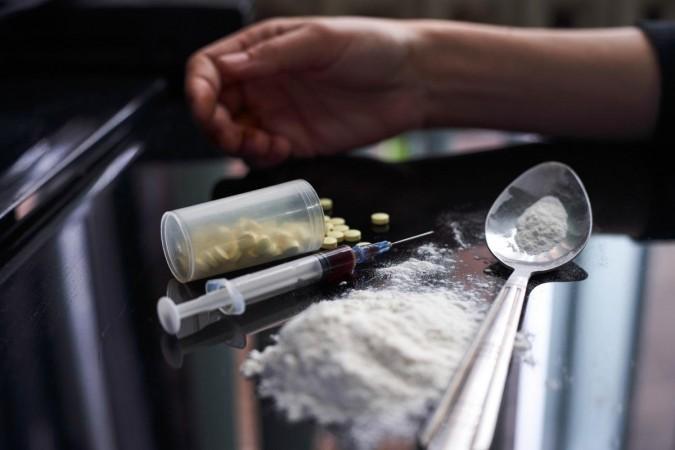Over 500,000 deaths are attributed to drug use worldwide annually. Of these casualties, around 115,000 result from opioid overdose. Heroin is an opioid that adds to these numbers. Being highly addictive, its dependence is notoriously hard to rehabilitate. Offering hope for the successful treatment of addiction and overdoses caused by heroin, scientists have discovered that a monoclonal antibody can effectively block the opioid's effects.
In a new study, researchers from the Scripps Research Institute have found that a monoclonal antibody known as 11D12 was able to impede heroin's painkilling effect as well as counter causes—slowing breathing and heart rate—of overdose deaths. The animal study also showed that 11D12 bound strongly with heroin and two of its main metabolites, morphine and 6-acetylmorphine.
"Our findings suggest that a monoclonal antibody-based therapy will be more effective than a vaccine and should be targeted to heroin itself rather than its psychoactive metabolites," said Dr. Kim Janda, senior author of the study, in a statement. The findings were published in the journal ACS Central Science.
Abused for Pleasure

Opioids are a class of drugs that act as analgesics, also known as painkillers, by interacting with opioid receptors in the brain cells. In addition to alleviating pain, opioids are also prescribed for treating cough, diarrhea, and other conditions. However, these substances can provide one with the feeling of euphoria; thereby, leading to their misuse as narcotics. Even under close supervision, opioids can be dependence-forming and can lead to addiction.
Some of the commonly prescribed—and abused—opioids are codeine, fentanyl, hydrocodone, morphine, and oxycodone. Heroin, an illegal and highly-addictive drug synthesised from morphine, is an opioid that is widely used recreationally. When heroin is introduced into the body, the enzymes in the blood metabolise it into morphine and 6-acetylmorphine. Much like other opioids, heroin abuse can not only result in life-long dependence, but can also injure the body, and even lead to overdose resulting in death.
For decades, scientists have attempted to develop viable active vaccines—that utilise immune-stimulating proteins mimicking heroin or its metabolites—to induce the production of antibodies against heroin. However, owing to their infectiveness, none have entered clinical trials. Therefore, the authors aimed to leverage monoclonal antibodies, which are considered a "passive" vaccine strategy, to counter heroin and its metabolites.
Effectively Blocking Heroin

For the study, the team inoculated mice with a deuterated heroin hapten called HdAc—a molecule that mimics heroin and induces antibody responses against heroin, 6-acetylmorphine, and morphine. Following this, they periodically collected sera from the rodents over the course of ten weeks. As expected, the molecule produced a robust antibody response against heroin and its metabolites. The researchers found that the clones of four specific antibodies had the strongest binding ability to the mentioned opioids and were selected for further evaluation.
Among the chosen antibodies, one surpassed the rest in tests: 11D12. Not only did 11D12 block the painkilling effects of heroin, but also protected the animals from what can be considered a lethal overdose of the opioid. It did so with a high degree of efficiency, equivalent to what might be required for human use clinically.
The authors also learnt that a single dose of 11D12 circulated within the bodies of the mice for weeks and remained active throughout that duration. This finding is significant as conventional drug treatments usually dissipate from the body within a few hours. Thus, 11D12's superior persistence can provide antibody therapies with an edge while treating non-compliant patients as compliance issues often serve as a roadblock in the treatment of addiction.
Questioning Existing Beliefs

Dr. Janda expressed that 11D12's performance surprised the team as it possessed the highest binding affinity to the heroin particle itself, which was not the case in the other three antibodies. The finding also challenges the long-held belief that morphine and 6-acetylmorphine were ideal drug targets for the development of immunotherapies. "The focus on the metabolites basically misguided the field -- our report will reset research in a direction where successful clinical trials should now be achievable," stated Dr. Janda,
So where does the study head from here? The scientists aim to create and test a human form of the mice antibody 11D12. In addition to the current research, the team has also been parallelly developing a human monoclonal antibody that counters synthetic opioids such as carfentanil, fentanyl, and other closely-associated substances. This antibody is ready for clinical trials.

















